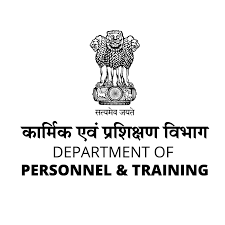CURRENT AFFAIRS
Get the most updated and recent current affair content on Padhaikaro.com
Rules for Deputation of DIGs
- Vaid's ICS, Lucknow
- 04, Mar 2022

Why in News?
- After its proposal to amend the All India Service Rules that would allow it to call any IAS, IPS or IFoS officer on central deputation with or without the state’s consent, the Centre has issued another order on central deputation of Deputy Inspector General-level IPS officers that may not be palatable to the states.
About the recent order
- The Department of Personnel and Training has said that IPS officers coming to the Centre at DIG level would no longer be required to be empanelled at that level with the Union Government.
- According to existing rules, a DIG-ranked IPS officer with a minimum experience of 14 years could only be deputed to the Centre if the Police Establishment Board empanelled them as DIGs at the Centre.
- The board chooses the panel on the basis of officers’ career and vigilance records.
- Only Superintendent of Police-level officers do not require empanelment at the Centre.
- The new order makes the entire pool of DIG-level officers in a state eligible for central deputation.
What was the need for such an order?
- Massive vacancies: The move is aimed at increasing the pool of DIG-level IPS officers for central deputation in the backdrop of massive vacancies in central police organizations (CPOs) and the Central Armed Police Forces (CAPFs).
- According to data sourced from various CPOs and CAPFs, out of 252 posts reserved for IPS officers at DIG level at the Centre, 118 (almost half) are vacant.
- IPS officers have a quota of 40% in CPOs and CAPFs.
- The Centre had in 2019 written to states proposing to decrease this quota by 50%, saying more than 60% posts remain vacant since most states do not spare their officers.
Significance of this move
- The idea is to ease up the process of central deputation as verification of records takes a long time.
- Because the number of DIGs is high, the empanelment process had become cumbersome and it was taking as long as one year to just complete the process.
- It increases the size of the pool of officers available to the Centre.
- This would not automatically allow DIGs to come to the Centre.
- Officers would still have to be put on the offer list for central deputation, which is decided by the states and the Centre in consultation. Also, states would have to be willing to relieve them.
Issues/ Challenges Associated
- Attempt to increase the power of the centre: If read with the recent proposal on deputation of IAS, IPS and IFoS officers, the new order may be seen by many states as the Centre’s attempt at pushing the envelope further on increasing its powers over officers serving in the states.
- Public interest: The Centre would have powers to demand, within a stipulated time frame, a certain quota of officers from the state for central deputation, and also to call any IAS officer on central deputation in “public interest”.
- In case the state failed to relieve the officer, he/she would be deemed relieved following the date fixed.
- There is little evidence of a waiver of empanelment conditions having an impact on vacancies at the Centre.
- For example, there is no requirement of empanelment for SP level posts, yet the vacancies are close to 50%.
- States don’t relieve officers because there is a serious paucity of officers in the states too.
Impact on the Service:
- The anomaly in IPS recruitment adversely affected cadre management over the years.
- On one hand, states are not providing enough DIGs or SPs to the Centre, while on the other; the Centre does not have enough posts if the total cadre reserve of IPS is calculated.
- Political agenda: While states should ideally promote batches or parts of it according to the vacancies available, political bosses often promote entire batches to please a certain section, in effect slamming doors on promotional avenues for those below them.
- CAPF officers, themselves facing career stagnation, have been demanding removal of the DIG-level quota for IPS officers as they are unwilling to join, so that force cadre officers can instead fill these posts.
Way Forward
- Sources say that by 2025, states may have surplus officers at DIG level to spare for the Centre and, if Centre-state relations remain normal, the issue may be resolved.
Facts for Prelims :
Sagar Parikrama” Program
- The Ministry of Fisheries, Animal Husbandry and Dairying is organizing the “Sagar Parikrama” program on the occasion of the 75th Azadi Ka Amrit Mahotsava.
Sagar Parikrama
About:
- As a mark of gratitude to our seas, Sagar Parikrama Program is saluting our great freedom fighters, sailors and fishers.
- The first leg of ‘Sagar Parikrama’ shall begin from Gujarat on 5th Feb 2022.
- Sagar Parikrama program is proposed to be celebrated in all coastal states/UTs.
Focus:
- Sustainable balance between the utilisation of marine fisheries resources for food security of the nation and livelihoods of coastal fisher communities
- Protection of marine ecosystems.
States included:
- It is proposed to be conducted in all coastal states/UTs through a pre-decided sea route to demonstrate solidarity with all fisher folk, fish farmers and concerned stakeholders as a spirit of Atma Nirbhar Bharat.
States includes:
- Gujarat,
- Diu,
- Maharashtra,
- Goa,